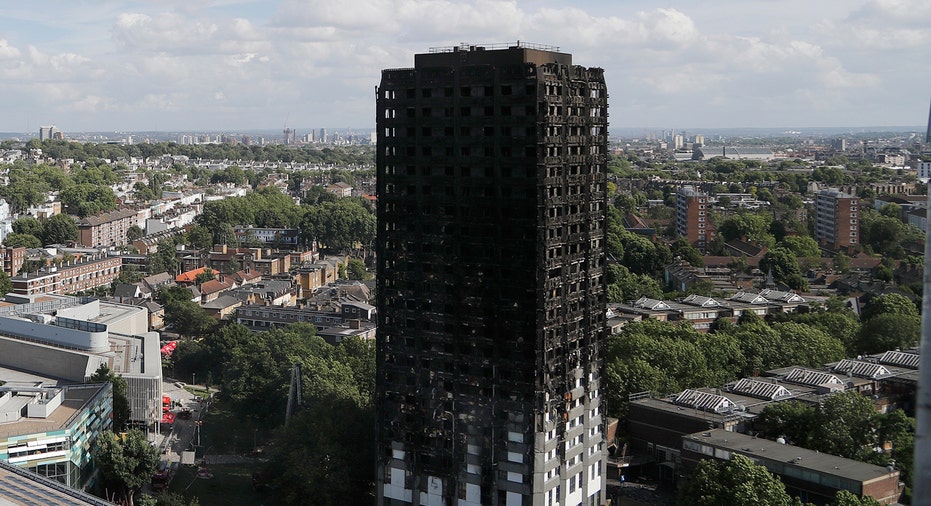Arconic stops selling panels from London fire for high-rises amid installation concerns

Arconic Inc., the U.S.-based company that manufactures building panels that investigators say may have played a role in a deadly London apartment fire, said Monday it will no longer sell the panels for use in high-rise buildings due to concerns about how they are installed.
Arconic Inc. is continuing to work with investigators to determine what caused the flames to spread so rapidly at Grenfell Tower on June 14, interim CEO David Hess told investors during an earnings call. At least 80 people died in the blaze.
"Cladding systems contain various components selected and put together by architects, contractors, fabricators and building owners, and those parties are responsible for ensuring that the cladding systems are compliant under the appropriate codes and regulations," the company said in a news release Monday.
About 12 days after the blaze, the company announced it would discontinue making its Reynobond PE panels available for high-rises.
That decision was made out of "an abundance of caution as Arconic does not control the ultimate design and installation of the final cladding system," the company said.
"We extend our deepest sympathies to those who have lost so much," Hess added Monday.
Despite its connection to the London tower fire, Arconic beat analyst estimates with $3.26 billion in second quarter revenue, according to a press release Monday. Earnings per share totaled $0.32, also topping projections.
An Associated Press review this month found that some building owners in the U.S. were unaware that the same Reynobond panels, which feature a polyethylene core, were used on their buildings as well. Polyethylene is combustible, according to federal agencies including the Centers for Disease Control and Prevention.
In many cases, building owners and regulators did not know the product was used on their structures, or exactly how it was applied. In several cases, old building records had been destroyed.
Among U.S. buildings that used this cladding is the Baltimore Marriott Waterfront hotel, which towers than 30 stories over the city's harbor; the Cleveland Browns' stadium; and a school in Alaska, according to Arconic brochures.
Cleveland city officials denied last week that FirstEnergy Stadium posed a danger to the public. The Cleveland Browns declined to provide a separate comment.
“The portions that caused the tragedy and caused the failure in London are the combustible insulation panels as part of the system and the way that system was installed. The reality of the matter is that these are not installed at the same matter at all here at FirstEnergy Stadium,” Vanover said a press conference.
No one has declared any of the U.S. buildings unsafe, nor has the U.S. government ordered widespread testing of building panels that British authorities ordered after the London catastrophe.
But in the wake of the London fire, samples were collected from the exterior of the hotel in Baltimore, and test results are expected soon, a Marriott spokesman has said.
Arconic has corporate offices in Pittsburgh and New York. Its Reynobond product has been on the market since it was first produced in 1989 at the company's manufacturing plant in Eastman, Georgia.
The Associated Press contributed to this report.



















